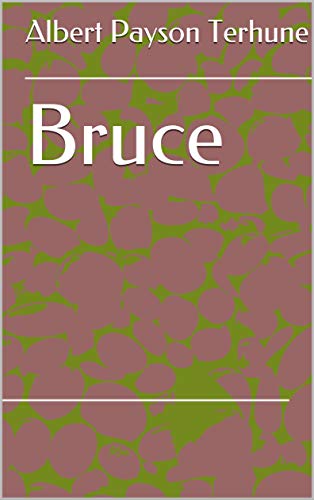CHAPTER IV BRUCE
byChapter IV opens with a chilling sense of uncertainty, framed by the dim haze of war. Life in the trenches during World War I is not simply dangerous—it is constantly shaped by elements that soldiers cannot control. Fog rolls in like a living thing, swallowing up visibility and amplifying every unseen threat. Amid this eerie atmosphere, Top-Sergeant Mahan becomes a source of hard-earned wisdom, passing on rules of survival to green recruits whose lives may depend on their ability to listen. Humor, often dry and ironic, seeps through the dialogue, not to lighten the mood, but to cope with the tension and fear that have settled like the mud beneath their boots. What stands out in these moments isn’t the horror of war alone—it’s the silent brotherhood built among men who must rely on instinct, memory, and each other to make it to tomorrow.
The presence of Bruce, the faithful Scotch collie, adds an emotional anchor amid the chaos. His reappearance among the soldiers isn’t just comforting—it’s deeply symbolic of resilience and loyalty in a world that constantly threatens to break both. War dogs like Bruce weren’t just pets; they were trained messengers, scouts, and sometimes the first to detect danger in places where men’s senses failed. His return is greeted not just with cheers but with genuine affection and trust—earned, not given. Mahan and Vivier in particular treat Bruce not as a tool of war, but as a comrade whose instincts have saved lives. This unspoken understanding between man and beast cuts through the noise of battle and brings forth one of the few sources of light in such a bleak environment. Bruce, through every wag of his tail and alert gaze, embodies courage that needs no translation.
The quiet doesn’t last long. A night mission into no man’s land strips away any remaining comfort, as Bruce joins Mahan and a handful of American soldiers in a risky operation. The air is thick with fog, robbing them of sight and layering each step with dread. Instructions are muffled, and the darkness presses in from all sides, making even trained men hesitate. One misstep from a rookie—a slight rustle, a misplaced word—is enough to awaken enemy ears, and within moments, the situation devolves into panic. Gunfire erupts, shouts pierce the void, and what was once a coordinated maneuver becomes a desperate attempt to survive. In this chaos, Bruce acts not with fear but with clarity, sensing danger and leading the group out of harm’s way through memory and instinct alone.
As they retreat, ducking under wire and through shell holes, Bruce’s choices reflect something greater than training—they reflect a bond of trust between him and the soldiers he protects. No human command was needed to direct him; he simply knew. This wordless leadership turns him into a beacon in the dark, and his presence offers hope even when bullets fly. The group’s narrow escape is owed in large part to Bruce’s decisions, not merely the tactics of the men. Through this ordeal, it becomes clear that war is not won only with guns or plans—but sometimes by following a creature who sees with something deeper than eyes. The mission, though marred by mistakes, ends with lives saved, thanks to the unwavering guidance of one brave collie.
What makes this chapter resonate is not just the action, but the layers of humanity revealed in crisis. War strips people of comfort, predictability, and even identity—but it also exposes the quiet nobility in actions taken not for glory, but for each other. Bruce’s role deepens this truth. He does not need medals or speeches; his bravery speaks loudest in moments where silence could kill. He listens, acts, and returns, never expecting anything but a pat or a look that says, “You made it possible.” Soldiers like Mahan and Vivier may never put it into words, but Bruce’s presence reaffirms their will to push forward. In a world torn apart by destruction, his calm in the storm becomes a lifeline they cannot afford to lose.
The story also makes a subtle but important statement about responsibility and foresight in wartime. Mahan’s advice, Bruce’s presence, and the costly mistake of the rookie all build a lesson in consequences. Whether human or animal, those who survive are often those who observe, adapt, and think beyond the moment. Training only goes so far when the terrain itself seems to turn against you. That’s where instinct, loyalty, and the quiet discipline of shared experience step in. Bruce is not just a hero because he helps them survive—he’s a symbol of what it means to carry each other through fire, fog, and fear.
Chapter IV of Bruce doesn’t merely describe battle; it immerses readers in the intimate struggle of those caught within it—especially the bond between a dog and his unit. Through shifting weather, failed missions, and human error, one truth stands tall: in war, the most dependable courage may come from those who speak no words at all. Bruce exemplifies that truth with every silent, steady step.

